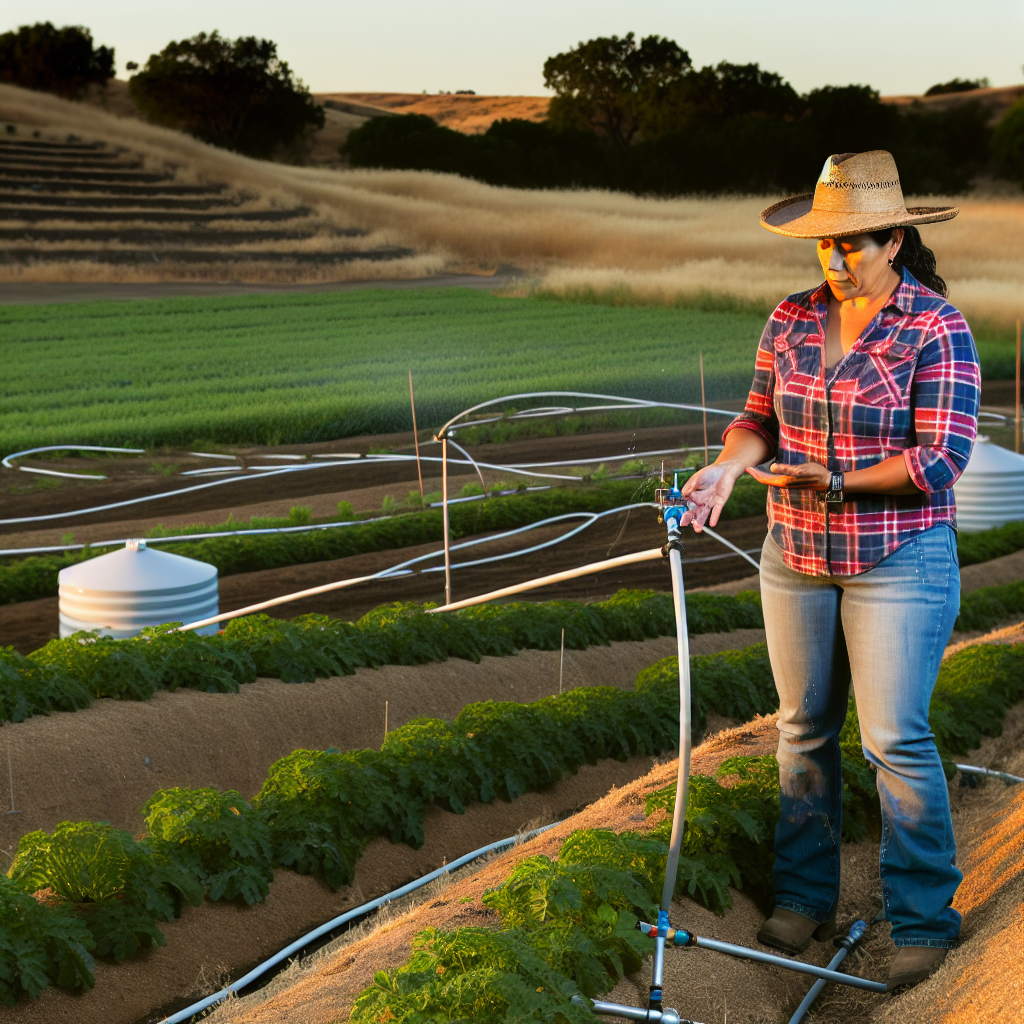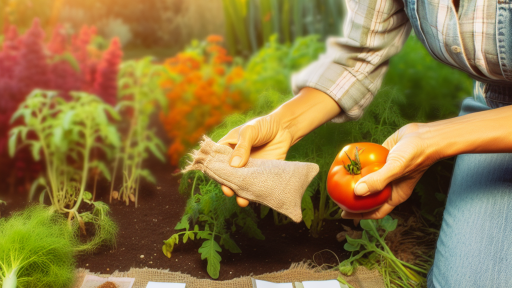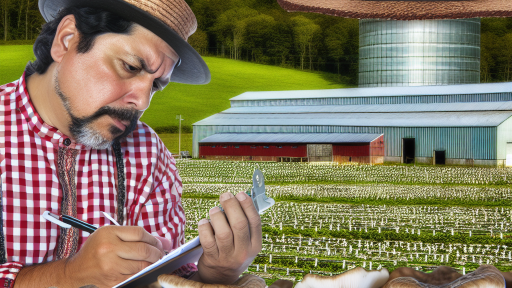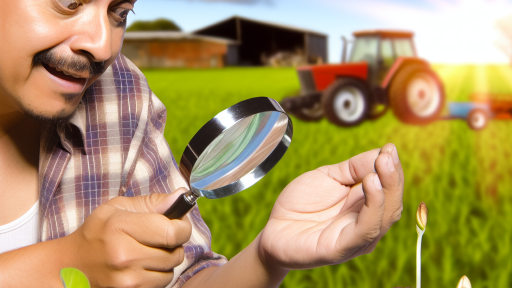Introduction to Sustainable Water Practices in Organic Farming
Sustainable water practices are essential in organic farming.
They help conserve water resources while promoting healthy ecosystems.
Farmers use various techniques to ensure water is used efficiently.
These practices also support soil health and plant growth.
The Importance of Water Conservation
Water conservation is crucial in farming.
It reduces the overexploitation of water resources.
Moreover, conserving water helps maintain natural habitats.
Farmers can sustain crops even during dry seasons by using less water.
Methods for Sustainable Water Management
Farmers employ several methods for sustainable water management.
- Drip irrigation minimizes water waste by delivering water directly to the roots.
- Rainwater harvesting collects and stores rainfall for future use.
- Soil moisture sensors help monitor water levels in the soil.
Benefits of Implementing Sustainable Practices
Implementing sustainable water practices offers numerous benefits.
First, it enhances crop yield and quality.
Next, it reduces costs associated with water use.
Additionally, these practices help mitigate climate change impacts.
Finally, they promote environmental sustainability and resilience.
Case Studies in Organic Farming
Many successful organic farms use sustainable water practices.
Transform Your Agribusiness
Unlock your farm's potential with expert advice tailored to your needs. Get actionable steps that drive real results.
Get StartedFor example, Green Valley Farms has implemented drip irrigation.
This technique significantly reduced their water usage.
Another example is Sunny Acres, which utilizes rainwater harvesting.
This approach allows them to cultivate crops during dry spells.
The Importance of Water Conservation in Agriculture
Water is a vital resource for all agricultural activities.
Farmers rely on it for crop cultivation and livestock care.
However, water scarcity poses significant challenges globally.
Thus, conserving water is crucial for sustainable agriculture.
Challenges in Water Management
Many regions face pressing water shortages today.
Climate change exacerbates these challenges through altered weather patterns.
Frequent droughts impact crop yields and farmer livelihoods.
Moreover, competition for water resources increases among sectors.
Consequently, efficient water use becomes paramount for farmers.
Benefits of Water Conservation
Conserving water enhances agricultural sustainability.
It helps maintain soil health and crop productivity.
Proper management leads to reduced operational costs for farmers.
Furthermore, it contributes to environmental protection.
Strategies for Effective Water Conservation
Implementing sustainable practices begins with education.
Farmers should be trained in efficient irrigation methods.
Common techniques include drip irrigation and rainwater harvesting.
Cover cropping also reduces water evaporation from soils.
Additionally, organic mulching improves soil moisture retention.
Collaboration and Support
Local governments should support water conservation initiatives.
Their involvement can foster community-wide awareness programs.
Showcase Your Farming Business
Publish your professional farming services profile on our blog for a one-time fee of $200 and reach a dedicated audience of farmers and agribusiness owners.
Publish Your ProfileAgencies can provide access to tools and resources for farmers.
Collaboration between farmers promotes sharing best practices.
Collectively, these efforts lead to positive change in water management.
Irrigation Techniques: Drip vs. Sprinkler Systems
Understanding Drip Irrigation
Drip irrigation delivers water directly to the plant roots.
This system reduces water wastage significantly.
It minimizes evaporation and runoff effectively.
A drip system operates with low pressure and flow rates.
Consequently, it encourages deep root growth.
Farmers can adjust the amount and timing of water application.
This customization supports different plants’ water needs.
Overall, drip irrigation promotes water conservation.
Exploring Sprinkler Systems
Sprinkler systems distribute water over a larger area.
They mimic natural rainfall, providing even coverage.
These systems can be stationary or mobile.
Farmers can adjust the angle and range of the spray.
However, sprinklers can lead to higher evaporation losses.
Wind can also disrupt the water distribution.
Consequently, proper planning is essential for efficiency.
Comparing Efficiency and Effectiveness
Drip and sprinkler systems have unique advantages.
Drip systems excel in water efficiency and targeting.
In contrast, sprinklers cover more area quickly.
Farmers must consider specific crop needs.
They should evaluate climate conditions and soil types.
Ultimately, the choice impacts water conservation efforts.
Cost Considerations
Installation costs vary between drip and sprinkler systems.
Drip systems often require more initial investment.
However, they can lead to lower water bills over time.
Sprinkler systems may be less expensive to install.
Yet, they might incur higher operational costs in the long run.
Farmers should calculate long-term savings and yield improvements.
Environmental Impact
Both systems can affect the environment differently.
Drip irrigation reduces water table depletion risks.
It also minimizes potential soil erosion issues.
Sprinkler systems may lead to water runoff and waste.
Farmers should aim for practices that protect local ecosystems.
Choosing the right irrigation method contributes to sustainability.
Delve into the Subject: Benefits Of Seed Saving For Sustainable Agriculture
Rainwater Harvesting: Methods and Benefits
Understanding Rainwater Harvesting
Rainwater harvesting captures and stores rain for future use.
This practice supports sustainable agriculture and conserves natural resources.
Farmers can utilize rainwater for irrigation, livestock, and household needs.
Showcase Your Farming Business
Publish your professional farming services profile on our blog for a one-time fee of $200 and reach a dedicated audience of farmers and agribusiness owners.
Publish Your ProfileMethods of Rainwater Harvesting
Several methods exist for effective rainwater harvesting.
Including surface runoff systems, rooftop catchment systems, and storage tanks.
Surface Runoff Systems
These systems collect runoff from fields and roads.
Farmers can direct this water into storage pits or ponds.
Surface runoff systems are particularly useful in rural areas.
Rooftop Catchment Systems
This method involves collecting rainwater from roofs.
Farmers can install gutters and downspouts to channel water.
They then store the water in tanks for later use.
Storage Tanks
Storage tanks are vital for maintaining a steady water supply.
These tanks can be made from various materials, including plastic and concrete.
Proper maintenance of storage tanks ensures water quality is safe.
Benefits of Rainwater Harvesting
Rainwater harvesting offers numerous benefits for farmers.
It reduces reliance on traditional water sources.
This method can lower water bills and increase self-sufficiency.
Environmental Benefits
Harvesting rainwater helps replenish local aquifers.
It reduces stormwater runoff and prevents erosion.
This practice promotes healthier ecosystems within farming areas.
Economic Benefits
Using rainwater can significantly decrease operational costs.
Farmers may qualify for incentives or grants that promote sustainability.
Additionally, it can enhance crop yields through consistent irrigation.
Social Benefits
Rainwater harvesting fosters community collaboration among farmers.
Sharing resources leads to collective improvements in sustainability.
Moreover, it increases awareness of water conservation methods.
Explore Further: Low-Maintenance Edible Landscaping Ideas
Soil Moisture Management
Understanding Soil Moisture
Sole moisture significantly impacts crop health.
It affects plant growth and yields directly.
Adequate moisture ensures optimal nutrient uptake.
Furthermore, moisture retention contributes to soil structure.
Techniques for Soil Moisture Management
Effective moisture management starts with soil testing.
This assessment provides crucial information about water retention.
Next, implement mulching strategies to minimize evaporation.
Mulch protects the soil while retaining moisture over time.
Additionally, consider crop rotation to enhance soil health.
Diverse crops can improve moisture retention and soil quality.
Tools for Managing Soil Moisture
Utilize tools like moisture sensors for real-time data.
These devices help monitor soil conditions effectively.
Another essential tool is a drip irrigation system.
This method delivers water directly to plant roots.
Moreover, rainwater harvesting can supplement moisture supply.
Collecting rainwater reduces reliance on external water sources.
Showcase Your Farming Business
Publish your professional farming services profile on our blog for a one-time fee of $200 and reach a dedicated audience of farmers and agribusiness owners.
Publish Your ProfileBenefits of Proper Soil Moisture Management
Effective moisture management promotes crop resilience.
Healthy crops withstand droughts better with proper practices.
Moreover, good moisture levels reduce the need for additional fertilizers.
Ultimately, sustainable practices lead to higher yields.
Delve into the Subject: Organic Techniques for Growing Mushrooms Sustainably
Crop Selection and Rotation for Enhanced Water Efficiency
Importance of Crop Selection
Choosing the right crops significantly affects water usage in farming.
For instance, drought-resistant varieties optimize water resources effectively.
Farmers can save water by selecting crops suited to local climates.
Additionally, crop varieties should align with soil type and regional rainfall.
Effective Crop Rotation Strategies
Crop rotation improves soil health and water retention.
Planting legumes enhances nitrogen levels and reduces fertilizer needs.
This practice also interrupts pest cycles, aiding crop resilience.
Farmers should rotate deep-rooted and shallow-rooted crops.
Such diversity promotes stronger root systems and better moisture absorption.
Utilizing Native Plants
Incorporating native plants can enhance water conservation efforts.
They require less irrigation and adapt well to local conditions.
This strategy also supports local wildlife and promotes biodiversity.
Farmers should research local native species that can thrive alongside their crops.
Implementing Agroecological Practices
Agroecological practices enhance water management in organic farming.
These methods promote sustainability and long-term agricultural efficiency.
For instance, intercropping can reduce water evaporation rates.
Another technique involves creating mulches to retain soil moisture.
Monitoring and Adapting Practices
Regularly monitoring water usage ensures efficient practices are maintained.
Farmers should track rainfall patterns and soil moisture levels.
This data allows for timely adjustments in irrigation techniques.
Additionally, adaptive management increases resilience to climate variability.
Uncover the Details: Getting Started with Hydroponic Farming

The Role of Cover Crops in Water Retention
Introduction to Cover Crops
Cover crops serve as a protective layer for the soil.
These plants grow between main crops to improve soil health.
They play a crucial role in sustainable water practices.
Enhancing Soil Structure
Cover crops enhance soil structure by adding organic matter.
This process increases the soil’s ability to retain water.
Healthy soil captures rainfall effectively, reducing erosion.
Preventing Runoff
Cover crops prevent runoff by stabilizing the soil surface.
Root systems hold the soil together, promoting infiltration.
This reduces the loss of water during heavy rains.
Increasing Soil Moisture
These crops enhance moisture levels in the soil.
Their roots penetrate deeply, allowing water to reach plant roots.
Moreover, this promotes deeper moisture availability during dry spells.
Diverse Crop Selection
Diverse cover crop species provide various benefits.
Showcase Your Farming Business
Publish your professional farming services profile on our blog for a one-time fee of $200 and reach a dedicated audience of farmers and agribusiness owners.
Publish Your ProfileLegumes, for example, fix nitrogen and improve soil quality.
Other species, such as rye, are excellent for biomass production.
Long-term Benefits of Cover Crops
Implementing cover crops leads to healthier ecosystems.
Farmers experience improved yields and reduced irrigation needs.
This approach contributes to sustainable water management practices.
Integrated Pest Management and Its Impact on Water Use
Understanding Integrated Pest Management
Integrated Pest Management (IPM) offers a sustainable approach to pest control.
This method combines various strategies for effective management.
By focusing on prevention, IPM reduces reliance on chemical pesticides.
Farmers employ techniques such as crop rotation and beneficial insects.
These practices contribute to healthier ecosystems on farms.
Water Conservation through IPM
IPM plays a crucial role in conserving water resources in agriculture.
Farmers who utilize IPM often apply water-efficient irrigation methods.
This reduces runoff and water wastage significantly.
Consequently, crops receive the necessary hydration without excess.
Moreover, healthy plants are better at utilizing available water.
Case Studies of Successful Implementation
Several farms demonstrate the benefits of IPM on water use.
For example, Cedar Grove Farm adopted IPM practices successfully.
They reduced their water usage by 30% over three growing seasons.
This was achieved through targeted pest control and conservation practices.
Similarly, Green Fields Farm saw increased yields with less water.
Challenges and Considerations
Implementing IPM can pose challenges for some farmers.
Initial costs may deter some from switching to this method.
Additionally, education and training are vital for successful execution.
Farmers must understand when and how to apply various strategies.
Despite these challenges, the long-term benefits often outweigh the costs.
Community Engagement and Education on Sustainable Water Practices
Importance of Community Involvement
Community involvement plays a crucial role in sustainable water practices.
It fosters a sense of ownership among local farmers and residents.
Engaged communities are more likely to adopt effective water conservation measures.
Furthermore, collaboration can lead to innovative solutions for water management.
Educational Programs and Workshops
Organizing educational programs enhances knowledge about sustainable practices.
Workshops provide hands-on experience with water-saving techniques.
These programs can cover topics like drip irrigation and rainwater harvesting.
Additionally, they promote understanding of local water resources.
Partnerships with Local Organizations
Forming partnerships with local organizations strengthens outreach efforts.
Organizations like Green Earth and WaterWise can assist in educational initiatives.
These partnerships ensure that resources and expertise are shared effectively.
Moreover, collaborations can lead to community events that raise awareness.
Utilizing Social Media for Awareness
Social media platforms can effectively spread awareness about sustainable practices.
Engaging content can educate the community on water conservation methods.
Regular updates can encourage participation in sustainability programs.
Showcase Your Farming Business
Publish your professional farming services profile on our blog for a one-time fee of $200 and reach a dedicated audience of farmers and agribusiness owners.
Publish Your ProfileFurthermore, social media can serve as a platform for sharing success stories.
Measuring Impact and Providing Feedback
It’s essential to measure the impact of community engagement efforts.
Feedback from participants can guide future educational initiatives.
Surveys and interviews can provide valuable insights into effectiveness.
Adjusting programs based on this feedback promotes continual improvement.
Additional Resources
What is Sustainable Agriculture? | Union of Concerned Scientists
Organic Farming | Sustainable Agriculture Research & Education …




